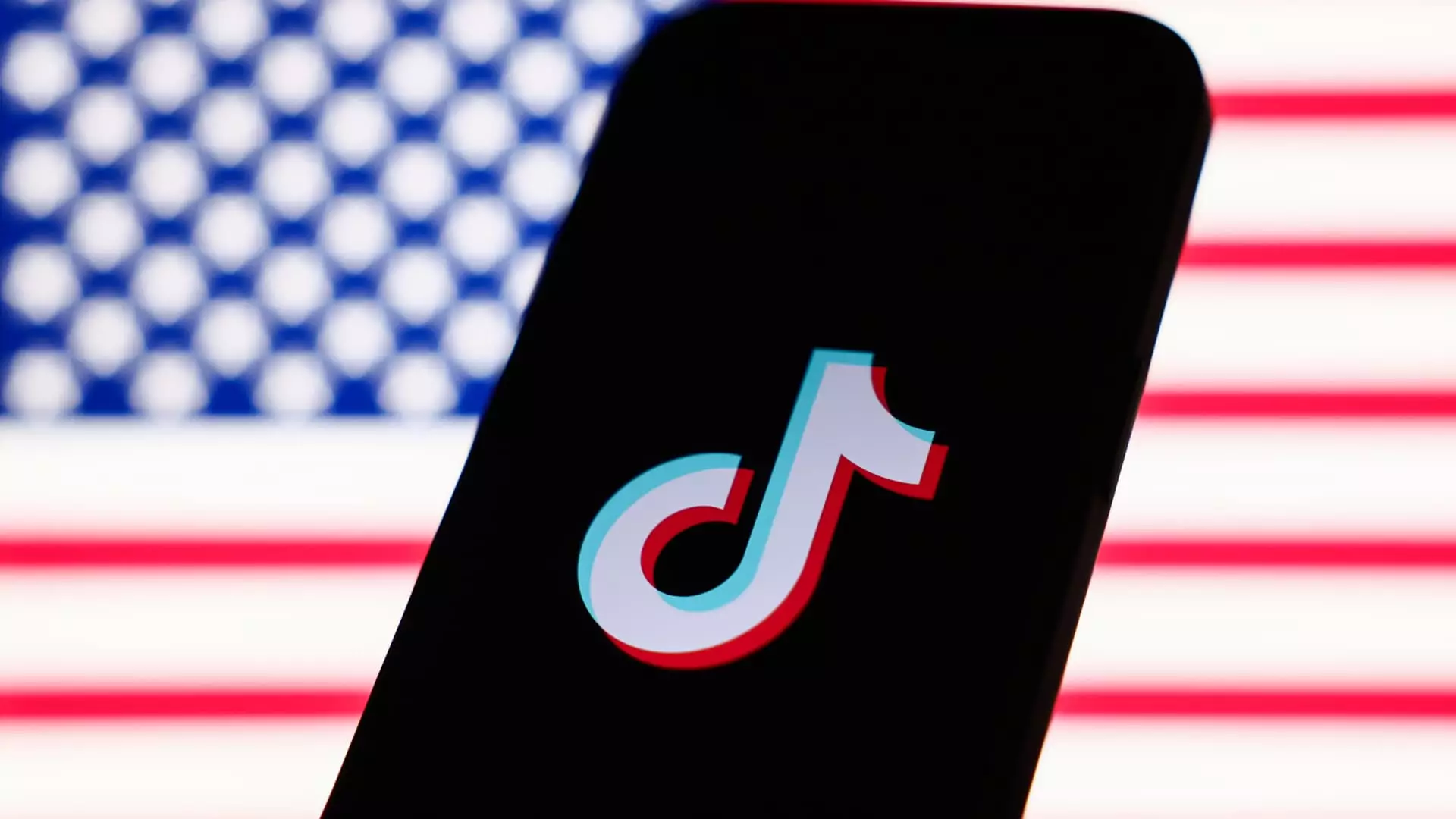The digital landscape is often marked by rapid evolution and unforeseen challenges, particularly for platforms like TikTok. As a significant player in the social media ecosystem, TikTok finds itself at a crossroads in the United States where its parent company, ByteDance, faces mounting pressure due to national security concerns. This uncertainty has prompted discussions regarding a potential sale of TikTok’s U.S. operations, inciting significant interest from high-profile investors and business magnates.
Recent reports suggest that if ByteDance were to sell TikTok’s U.S. operations, prospective buyers—including influential figures such as Elon Musk—might need to prepare for a hefty price tag estimated between $40 billion and $50 billion. This valuation, articulated by Angelo Zino of CFRA Research, reflects TikTok’s user engagement metrics, which boast approximately 115 million monthly mobile users in the U.S. This figure places TikTok just behind Instagram but ahead of platforms like Snapchat and Pinterest. However, these numbers must be contextualized within the broader narrative of political scrutiny and regulatory factors that complicate a potential sale.
The fluctuating valuation underscores the multifaceted challenges TikTok faces. Initially, Zino pegged the unit’s value at over $60 billion, but with geopolitical tensions on the rise, particularly regarding data privacy concerns linked to its Chinese ownership, the forecast has dimmed. Experts suggest that TikTok’s algorithms—central to its user engagement and anticipated success—are a significant aspect missing from any prospective deals. This absence further complicates efforts to establish a concrete sale framework, as U.S. acquirers would be cautious of acquiring a platform perceived as a national security threat.
The discussion around TikTok’s U.S. operations is intrinsically linked to an array of regulatory challenges. Analysts have raised alarms about the implications of potential U.S. bans if the Supreme Court were to uphold existing national security laws. Such a scenario creates anxiety for potential buyers, who must navigate not only the financial aspects of acquisition but also the intricate web of government scrutiny towards data practices and privacy issues tied to TikTok’s operations.
Furthermore, the prospect of a forced sale introduces a sense of urgency that could further depress valuations. Bloomberg Intelligence analysts estimate the value of TikTok’s U.S. unit to be in the $30 billion to $35 billion range, emphasizing that the pressure to sell makes it inherently less attractive to investors. Companies looking to purchase TikTok might face an uphill battle not only in terms of regulatory clearance but also in strategically scaling the platform’s advertising potential post-acquisition. Without the cachet of the app’s powerful recommendation algorithms, a buyer’s ability to capitalize on TikTok’s successes may be significantly hampered.
Despite these daunting challenges, interest in acquiring TikTok remains robust. For example, a coalition including billionaire Frank McCourt and notable investors like Kevin O’Leary has expressed interest in acquiring TikTok’s U.S. assets, reportedly with a willingness to pay up to $20 billion. This offer, however, also acknowledges the potential absence of the algorithm within the deal and positions itself as a more feasible option than a high-profile bid from figures like Musk, who could face intensified regulatory scrutiny.
The divergence between prospective buyers offers a window into how the competitive landscape may unfold. While Musk’s involvement could raise the stakes, it carries its own set of complications stemming from public perception and government oversight. Conversely, smaller consortium bids may align closely with regulatory expectations, setting the stage for a more streamlined acquisition process.
TikTok’s position within the American digital marketplace is precarious, shaped by intricate geopolitical dynamics, regulatory concerns, and fluctuating valuations. As the clock ticks towards potential deadlines that could impact its operational status, the future of TikTok remains fraught with uncertainty. Whether it leads to a significant acquisition or potential dissolution within the U.S. market, the journey ahead will undoubtedly affect not only its millions of users but also the broader social media landscape. Investors and stakeholders alike must tread carefully as they navigate this volatile environment, balancing ambition with the sobering realities of regulation and national security considerations.


Leave a Reply